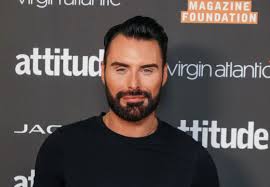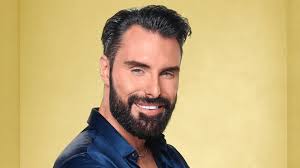When the Studio Went Silent
(A fictional short story)
The red light above Camera Two flicked on.
“Live,” someone whispered through the earpiece — and just like that, the illusion began.
Three people stood beneath the heat of the lights. A politician, sharp-suited and restless. A beloved actress, calm as a blade sheathed in velvet. And the host — caught somewhere between fascination and fear — gripping his cue cards so tightly that his knuckles went white.
No one expected what came next.

The politician leaned forward, eyes locked on the lens. His voice was steady, almost too steady.
“I refuse to sugarcoat the truth,” he said. “Not here, not now, not ever.”
The control room went still. Someone mouthed, He’s off-script. But the feed was live. Millions were watching.
Across the table, Joanna didn’t flinch. She sat poised, a faint smile tugging at the edge of her lips — the kind that said she had been waiting for this moment all along.
“Truth?” she said softly. “You mean the version that fits your story?”
The words cut cleanly through the hum of cameras and cables. The host blinked, his script now useless. He glanced at the producer through the glass wall of the control booth, silently asking for rescue. But none came.
For a heartbeat, no one moved. Then the politician laughed — not kindly, not nervously, but as though disbelief itself were his shield.

“You think you know the story?” he asked. “You live off outrage. You build careers out of anger.”
Rylan, the host, leaned back. “Let’s not—” he began, but Joanna was already standing. Her calm shattered into fire.
“Outrage?” she snapped. “I build what you destroy. Don’t lecture me about truth when your version comes pre-packaged with applause.”
The air changed. It wasn’t just a debate anymore. It was something primal — a collision between power and performance, between those who controlled the message and those who had grown tired of it.
Rylan’s earpiece buzzed with frantic voices.
“Cut to commercial!” someone yelled.
But Rylan hesitated. Maybe it was instinct. Maybe it was something deeper — a sense that this, whatever this was, mattered more than the next advertisement.
“No,” he said quietly. “Let it run.”
And it did.
For ninety seconds, the broadcast became pure chaos and truth in equal measure. No teleprompters. No filters. Just three people tearing down the polite wall that television always built between performance and reality.
Joanna’s voice cracked with anger, but her eyes never left the camera.
“You hide behind policy while people drown in promises.”
“And you,” he fired back, “turn pain into spectacle!”
Every word struck like a match. Every silence burned hotter than sound.
In the control room, no one breathed. The countdown clock kept flashing — LIVE — LIVE — LIVE. Someone reached for the mute button, but froze. Because even through the chaos, there was something magnetic about it.
This wasn’t scripted television anymore. This was truth, raw and trembling, bleeding through the cables.
Then — silence.
Not because anyone told them to stop, but because there was nothing left to say.
The studio lights hummed. The audience — usually warm, chatty, restless — sat frozen, eyes wide. Even the cameras seemed unsure where to point.
Rylan exhaled slowly.
“And that,” he said finally, voice trembling, “was… unexpected.”
The feed cut to black.
Aftermath
Outside the studio, the world erupted. Within minutes, clips flooded the internet. Edits, remixes, slow-motion replays. People argued over who had won, who had lost, who had gone too far.
Some called it “The Confrontation.” Others, “The Collapse.”
But most agreed on one thing — they had never seen television like that before.
In pubs and offices, people replayed those ninety seconds like forensic analysts. Every raised eyebrow, every pause, every flicker of expression became evidence for one side or another.
Joanna’s name trended within minutes. So did the politician’s. Rylan’s quiet decision — Let it run — became a meme, then a mantra.
Inside the BBC building, however, the mood was anything but triumphant. Executives whispered behind closed doors, debating damage control. Statements were drafted and redrafted, apologies rehearsed, clips reviewed frame by frame.
But the three who had stood under the lights didn’t say a word.
Joanna left through the back exit, wrapped in a long gray coat, her face unreadable. The politician disappeared before the credits rolled, his car waiting by the side gate. And Rylan stayed — sitting alone in the now-dark studio, the echo of their words still hanging in the air.
He looked at the empty chairs and wondered what it had meant. Was it a breakdown, or a breakthrough? Chaos, or honesty?
Somewhere inside him, he knew the answer didn’t matter. Because for the first time in a long time, television hadn’t looked like television. It had looked like real life — messy, flawed, human.
And when the world finally went quiet, when the headlines began to fade, those ninety seconds lingered.
Not as scandal.
Not as spectacle.
But as the moment three people stopped performing — and simply were.